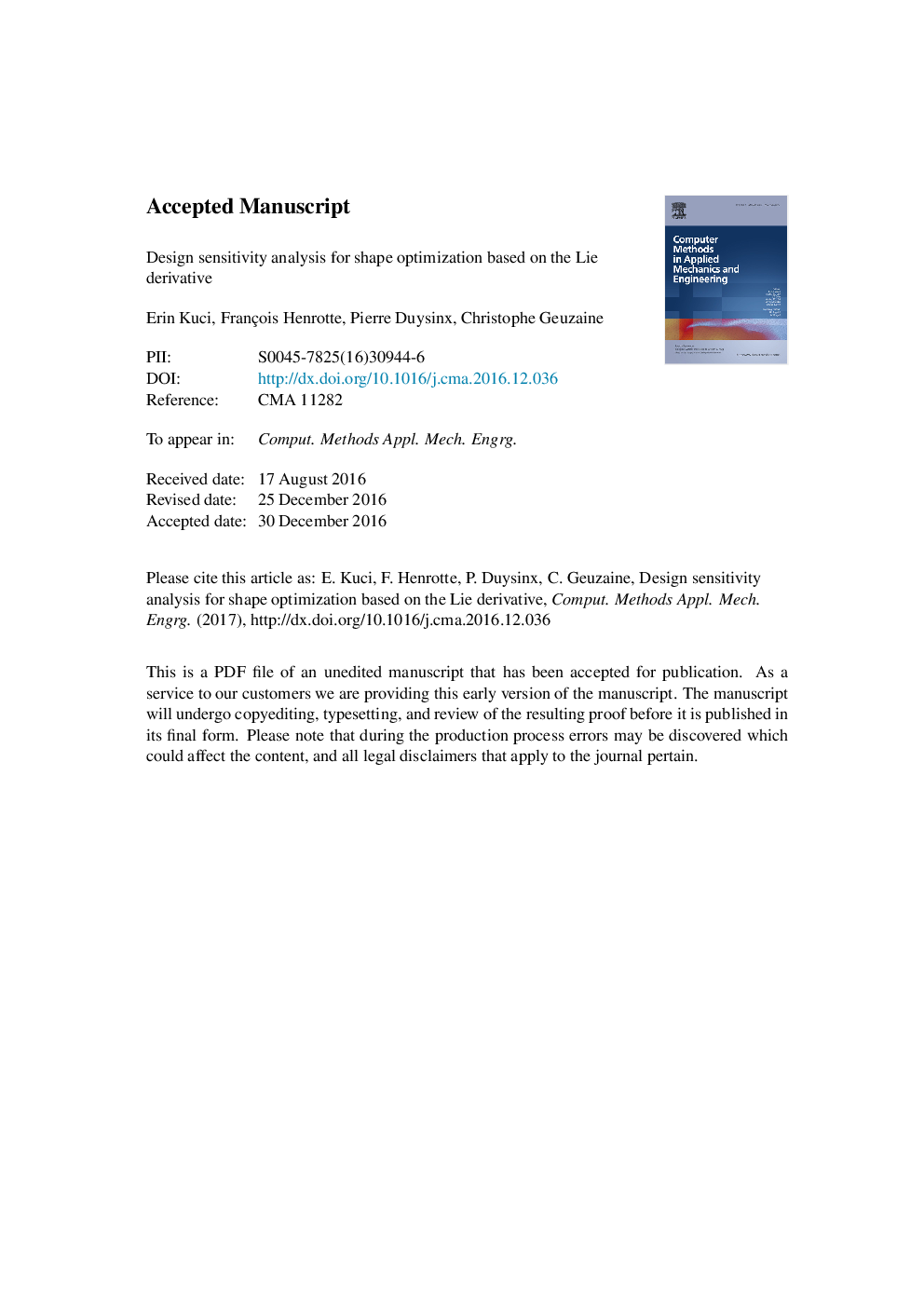| Article ID | Journal | Published Year | Pages | File Type |
|---|---|---|---|---|
| 4964124 | Computer Methods in Applied Mechanics and Engineering | 2017 | 33 Pages |
Abstract
The paper presents a theoretical framework for the shape sensitivity analysis of systems governed by partial differential equations. The proposed approach, based on geometrical concepts borrowed from differential geometry, shows that sensitivity of a performance function (i.e. any function of the solution of the problem) with respect to a given design variable can be represented mathematically as a Lie derivative, i.e. the derivative of that performance function along a flow representing the continuous shape modification of the geometrical model induced by the variation of the considered design variable. Theoretical formulae to express sensitivity analytically are demonstrated in detail in the paper, and applied to a nonlinear magnetostatic and a linear elastic problem, following both the direct and the adjoint approaches. Following the analytical approach, one linear system of which only the right-hand side needs be evaluated (the system matrix being known already) has to be solved for each of the design variables in the direct approach, or for each performance functions in the adjoint approach. A substantial gain in computation time is obtained this way compared to a finite difference evaluation of sensitivity, which requires solving a second nonlinear system for each design variable. This is the main motivation of the analytical approach. There is some freedom in the definition of the auxiliary flow that represents the shape modification. We present a method that makes benefit of this freedom to express sensitivity locally as a volume integral over a single layer of finite elements connected to both sides of the surfaces undergoing shape modification. All sensitivity calculations are checked with a finite difference in order to validate the analytic approach. Convergence is analyzed in 2D and 3D, with first and second order finite elements.
Related Topics
Physical Sciences and Engineering
Computer Science
Computer Science Applications
Authors
Erin Kuci, François Henrotte, Pierre Duysinx, Christophe Geuzaine,
